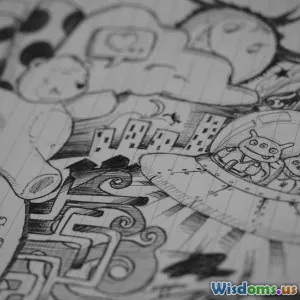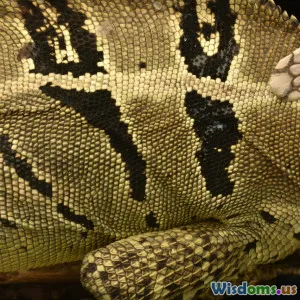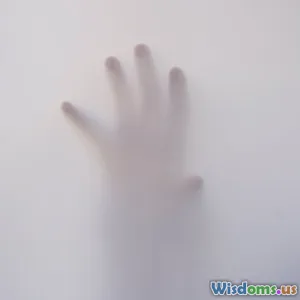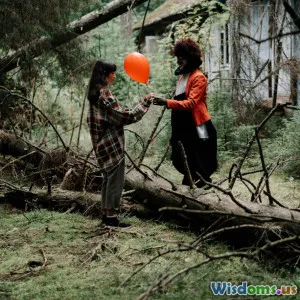
How to Detect Signs of Hauntings in Your New Home
8 min read Discover how to identify signs of hauntings in your new home with practical tips, real stories, and expert insights. (0 Reviews)
How to Detect Signs of Hauntings in Your New Home
Moving into a new house marks a fresh chapter in life. But what if this new beginning comes with unexplained phenomena that make you question the very walls surrounding you? Haunted houses occupy a unique place in human culture—some fear them, others are intrigued by their mystery. Understanding how to detect signs of hauntations can turn unease into empowerment, allowing you to make informed decisions and protect your home and family.
The Intrigue Behind Haunted Homes
From iconic legends such as the Amityville Horror to lesser-known local tales, haunted homes have inspired fascination and fear in equal measure. While many stories border on folklore and exaggeration, there are surprisingly commonalities that researchers and paranormal enthusiasts report across haunted sites:
- Sudden unexplained cold spots
- Strange noises like footsteps or whispering
- Electrical disturbances
- Objects moving without cause
In the context of adopting or buying new property, recognizing these phenomena early can save you emotional distress and provide clarity on what may require further investigation.
Common Signs of Haunting to Watch For
1. Unexplained Sounds and Voices
Hearing footsteps in empty rooms, doors creaking without wind, or even faint whispers can be alarming. According to a survey published by the Ghost Research Society, these auditory experiences are among the top reported signs in haunted residencies. They often defy rational explanation and may happen more frequently during specific times, such as late at night.
Example: In 2017, a family in Salem, Massachusetts reported nightly knocks and indistinct murmurs. Subsequent investigation by paranormal teams revealed the sounds correlated with air duct vibrations but also some unexplained audio recordings lasting a few seconds only caught on highly sensitive devices.
2. Sudden Temperature Changes
Cold spots in an otherwise warm room are classic haunt indicators. These sharp dips in temperature, often localized and persistent, have been observed by parapsychologists studying haunted locations. While drafts or HVAC issues can cause cold areas, multiple, distinct cold pockets that come and go warrant attention.
3. Electrical Malfunctions
Flickering lights, malfunctioning appliances, and sudden disturbances with electrical devices can suggest energetic anomalies. In a study by the Rhine Research Center, areas reported as haunted sometimes show erratic readings in electromagnetic fields (EMFs), which may interfere with electronics.
Some explain these issues as residual energy or spirit attempts at communication.
4. Unexplained Smells and Aromas
Certain scents with no obvious source—like perfume, tobacco, flowers, or decay—are often reported in connection with supernatural activity. An example is the persistent smell of lavender regularly reported in the famous Winchester Mystery House, believed to be linked with the spirit world.
5. Visible Apparitions or Shadow Figures
While rarer and more subjective, sightings of shadowy shapes or even full apparitions have been documented throughout history. These experiences can be deeply distressing but often come alongside other signs listed above.
Investigating Your New Home: Practical Steps
Conduct Historical Research
Before moving in, investigate the history of the property:
- Past owners and their stories
- Any reported deaths or tragedies on site
- Previous use such as hospitals or prisons, which are traditionally linked to hauntings
Online databases, local libraries, and community elders can provide valuable insights. Knowledge empowers you to distinguish natural causes from paranormal possibilities.
Use Technology to Detect Anomalies
Common tools employed by paranormal investigators include:
- EMF meters: to identify electromagnetic fields
- Thermometers or infrared cameras: to detect cold spots
- Voice Recorders: to capture EVP (Electronic Voice Phenomena)
While these devices don't prove hauntings outright, repeated anomalies recorded via technology demand further scrutiny.
Observe Patterns and Keep Logs
Keep a detailed record of all unusual occurrences: date, time, description, affected area, and any possible environmental factors such as weather. Patterns often emerge over time, allowing you to verify if events correspond with logical explanations or suggest deeper phenomena.
Consult with Paranormal Experts
If signs persist and cause concern, consider inviting certified paranormal investigators. They bring experience, equipment, and a methodical approach to rule out natural causes.
Addressing and Coping with Signs of Haunting
Practical Solutions
- Eliminate structural issues like drafts and faulty wiring.
- Rearrange or clean areas with frequent activity.
- Use ambient noise or white noise machines to mask sounds.
Spiritual and Cultural Remedies
Many cultures employ cleansing rituals such as smudging with sage, placing protective symbols, or performing blessing ceremonies. These practices have deep psychological benefits, even when approached skeptically, by creating a sense of control and safety.
Psychological Perspective
Sometimes, perceived hauntings arise from stress or anxiety, especially after moving to an unfamiliar place. Keeping a friend or counselor involved can help maintain a balanced perspective.
Real World Insight: A Family’s Experience
The Johnsons moved into a Victorian-era Michigan house and within weeks began experiencing banging sounds and flickering lights. Initial frustration turned to fear after their cat visibly stared at empty corners. After researching the home’s past, they discovered a previous occupant died tragically. Calling in a paranormal team revealed no rational cause, but performing a house blessing significantly reduced disturbances. The Johnsons’ approach combined investigation, practical fixes, and cultural rituals—demonstrating a balanced way to handle paranormal suspicions.
Conclusion
Detecting signs of hauntings in your new home requires a blend of curiosity, skepticism, and sensitivity. By understanding common phenomena—from cold spots to strange noises—you can better discern what is natural versus unexplainable. Utilizing technology, historical research, and expert consultation equips you to navigate any eerie experiences thoughtfully.
Ultimately, a house is more than bricks and mortar—it’s a space of comfort and security. Recognizing and addressing paranormal signs early can safeguard your peace of mind, letting you fully embrace the joys of your new beginning.
References:
- Ghost Research Society Annual Journal, 2021
- Rhine Research Center Publications on EMF and Hauntings
- Salem Paranormal Investigations Case Files, 2017
- "The Winchester Mystery House" by Kathryn Bacon
Note: This article is for informational purposes and encourages respectful exploration of beliefs and experiences in paranormal phenomena.
Rate the Post
User Reviews
Popular Posts




















